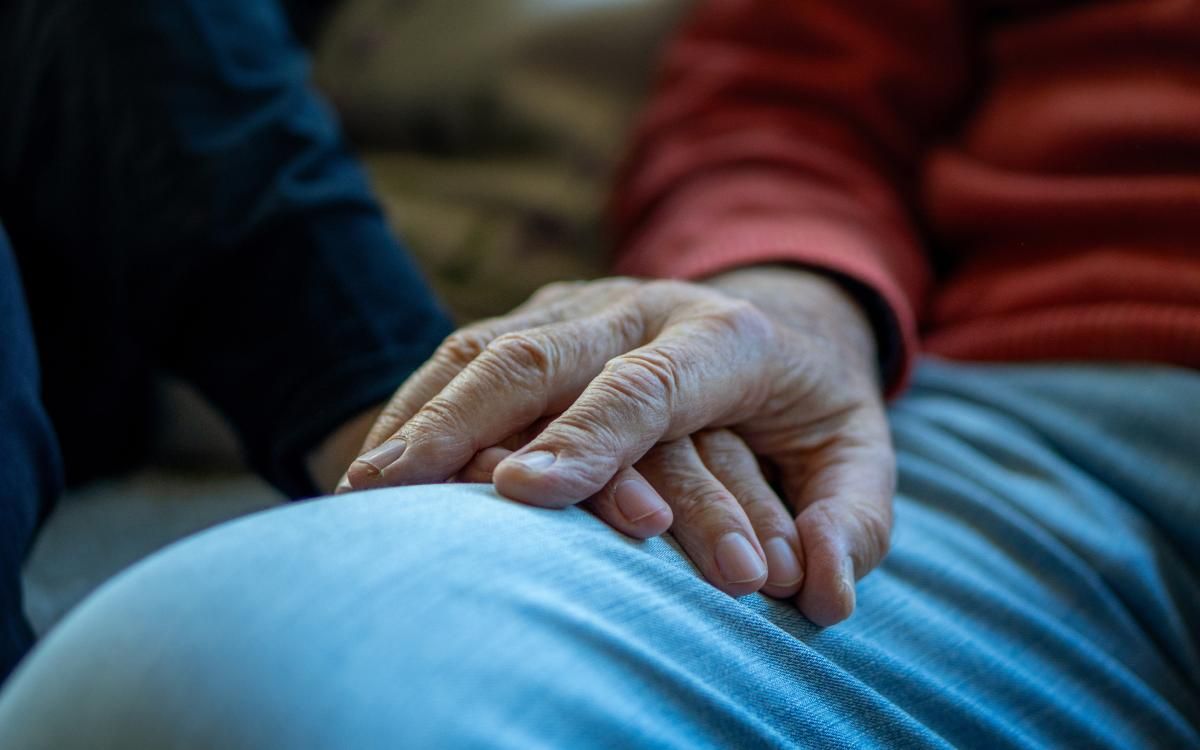Life, as you know it, doesn’t always work out the way you have planned. Sometimes, it brings waves of grief out of the blue. It is perfectly normal to feel unsettled during such life changes and look for ways to restore your emotional balance. Healing doesn’t mean rushing past the pain. Instead, it is about slowly finding your footing, letting yourself feel okay again, and finding strength and hope as you move forward at your own pace.
How Change Affects Your Feelings and Heart
As you navigate different chapters of your life, your emotions can go through many ups and downs. You may feel overwhelmed and frustrated at times, and it’s okay. This is because life as you have come to know it so far is no longer the same. What helps in these situations is knowing that these feelings of sadness and uncertainty are common companions through change. Healing often takes time and is a personal journey unique to each individual.
Feelings of Sadness and Uncertainty
When your life undergoes a loss that causes a lot of emotional trouble and confusion, it’s natural to feel sad. Sometimes, you may also wonder what the future holds. You may also miss the routines and responsibilities that once shaped your days. All of this can make it difficult for you to move on. So, when you experience such feelings, give yourself time to grieve these losses because they mattered to you.
There might be days when you experience loneliness, even when surrounded by others, because the familiar rhythm of your life has changed. The mix of these feelings of sorrow, uncertainty, and loneliness can make it tough to move on. During such instances, you need to remember that such feelings do not mean that you are weak. Instead, they are signs that you care deeply about your life. This thought can help you be gentle with yourself. Telling yourself that it is okay to go through what you are feeling is the first step in your healing journey. This way, you start to acknowledge what is happening in your heart and to allow yourself to feel these raw, honest emotions.
Healing Is Gradual and Unique to You
Sometimes, healing from unforeseen life events can take days, months, or even years. What matters most is that you allow yourself to heal in your own way and at your own pace. The healing journey typically begins with acceptance. You should accept grief and embrace your feelings instead of pretending that everything is perfect or the way it was before. Even when you are generally feeling better, you may feel overwhelmed or confused on some days. All of these emotions are part of the process, and when you treat them with patience and kindness, it becomes easier to cope.
Everyone heals in their own way, and your experience will never look exactly like someone else’s. The way you move through loss depends on many factors. This includes how you manage stress and the kind of support you have around you. Your past experiences and emotional well-being also shape how you move forward.
Healing is not pretending that everything is perfect or the way it was before. It is about embracing your feelings, accepting grief, and slowly finding comfort in your new situation.
Healing Through Loss
As you start your healing journey, remember that the process covers several areas of personal development. You should focus on acknowledging past pain and accepting your current feelings without judgment. Treat yourself with the same kindness you would offer a friend. Use what you learn from the experience as a tool to move on. Healing typically happens in a series of deliberate and small phases.
Breaking Healing into Manageable Steps
When you are dealing with loss, it can feel overwhelming at first. Instead of forcing yourself to bounce back all at once, give yourself the time to take things one step at a time. Often, healing from loss is more like walking along a winding path rather than climbing a mountain. Each step that you take along the path is worth the effort and a sign of progress. Breaking healing into manageable steps helps you feel more in control. It builds confidence with each small win and makes the journey less overwhelming, helping you stay motivated, patient, and kind to yourself.
Recognize Your Feelings
Take time to observe all the emotions you’re experiencing right now, whether they’re sadness, anger, worry, or confusion. Accepting these feelings rather than ignoring or pushing them away is the first step you can take on your healing journey.
Let Yourself Feel
Allow space for your emotions instead of pushing them aside. To do this, talk to someone you trust, write down your thoughts, or just sit with your feelings for a while. When you pay attention to your emotions, it becomes easier for you to release the weight and navigate them.
Learn from Emotions
Sometimes the emotions you feel signal what your mind and body need—whether that’s rest, connection, or simply a moment to pause and reflect. Reflecting on these feelings can help you understand yourself better and find healthier ways to handle big changes.
Commit to a Simple Routine
Even simple actions like going for a morning walk, preparing your meals, or sitting down for a cup of tea at the same time every evening can help with healing. Committing to a simple routine during healing provides structure and predictability, supporting both physical and emotional recovery by helping you feel more in control and steady each day. If even these feel challenging, focus on gentle goals like pausing for a few slow breaths; small steps help you move forward, even on tough days.
Weekly Self-Check-ins
Taking a weekly break to check in on yourself helps you stay connected to your emotions, recognize changes early, and build self-awareness that supports steady healing and resilience after loss. You can do this by writing down the actions you took throughout the week that helped you feel more grounded. On days when motivation is hard to find, be patient with yourself and avoid self-judgement. If needed, consider joining community programs or peer support groups.
Honoring What Matters Most
Honoring memories plays a crucial role in healing when what has changed has deeply influenced your life and who you are. One way to do this is by reflecting on the lessons, memories, and experiences the loss brought you. This will help bring context and meaning to your life. To support your healing journey, consider creating a small ritual to honor your loss.
- Make a memory box or a photo collage to preserve good memories.
- Take a quiet walk in a favorite spot.
- Plant a tree, garden, or flower bed as a living tribute to meaningful connections.
- Get together with friends and family to share stories, favorite recipes, or photos from cherished times.
- Make a scrapbook to hold letters, mementos, and meaningful keepsakes.
- Volunteer for a cause your loved one cared about to continue their legacy.
- Establish an annual tradition, such as lighting a candle, to mark important dates.
- Donate to a local group, school, or library that connects you to your loved one’s interests.
- Write journal entries expressing gratitude for the role or relationship you’re honoring.
- Support or host a local event tied to your loved one’s favorite hobbies, such as a chess tournament, book club, fishing derby, or garden tour.
Gestures like these help you acknowledge the importance of what’s changed. This allows you to recognize the sadness of letting go and reflect on the positive memories and the shared love. When you feel a sense of longing or wish things were different, sharing stories with trusted friends and family can bring comfort. Laughing and crying together helps you honor meaningful moments from the past while strengthening your connections in the present. This shared support encourages healing by reminding you that you’re not alone on this journey.
Practical Ways to Build Resilience
Resilience helps you handle tough times by balancing difficult emotions with inner strength and purpose. Small, intentional actions can help you gradually build strength, like taking time for yourself and connecting with others. There are many other practical steps that help you move forward on your healing journey and find hope even when life feels hard.
Positive Self-Talk
Short, comforting phrases or affirmations, like “One step at a time” or “This too shall pass,” can gently remind you to trust your process and keep moving forward. Find words that feel meaningful, and repeat them throughout your day to reassure yourself in moments of worry or doubt. Practice speaking gently to yourself, with kindness and encouragement that you would offer a close friend. This makes it easier to tide over difficult situations. When you notice you’re being hard on yourself, pause and reframe your thoughts in a more caring way. Over time, self-compassion and positive affirmations can go a long way toward building your emotional strength.
Journaling
Writing down your thoughts and feelings can help you release stress, reduce tension, and gain perspective on your new emotions. Journaling provides a safe, private space to organize your thoughts, preserve cherished memories, express your feelings without judgment, and work through unresolved feelings in a healthy way. You can use a simple notebook, a guided grief journal, or even dedicated apps to add your entries.
Practice Gratitude
Focusing on positive things, however small, can help reduce the emotional pain and difficulty caused by loss or big life changes. You can take a moment each day to note a few things you feel grateful for. It can be something as simple as having your favorite meal, enjoying the soft morning sunlight, or engaging in a pleasant chat. Such moments of joy, no matter how small, lift your spirits and make it easier to shift your emotions into the present.
Mindfulness
Mindfulness practices help you handle your thoughts and feelings without judging them, making it easier to manage overwhelming emotions. When life feels chaotic, pausing for a few minutes to breathe deeply can help bring a sense of calm. You can focus on sounds, smells, and scenery around you, or sit quietly and meditate. All these can help you stay focused on the present moment, reduce stress, and help you cope with the uncertainties of life.
Physical Activity
Light, low-impact movements can relieve stress and boost your energy levels. Simple outdoor activities like walking, stretching, or even gentle yoga can help you relax and sleep better. Proper rest allows your body to rest and repair itself from the stress of grief.
Creative Expression
Hobbies like painting, gardening, playing music, crafting, or photography encourage creative expression and emotional healing. Even joining classes or workshops that let you explore your creative interests can provide a healing outlet for processing your emotions. Simply putting your hands to work through knitting, woodworking, or assembling a puzzle can also help.
Connecting with Community and Causes
Helping your community through volunteering gives you a new sense of purpose. It also builds a support system that shifts your focus from difficult emotions to positive action. By joining local organizations or groups that reflect your values, you find meaningful ways to use your time, energy, and creativity. This not only strengthens your connections and lifts your mood but also lowers stress and helps you move forward in your healing journey with a new sense of hope and confidence.
Reaching Out
Seeking support during your healing journey is a sign of strength and self-awareness. When someone listens to you without judgment or interruption, you will feel heard and understood. So when the path forward feels overwhelming, you can consider seeking counseling. A trained professional can provide a safe, confidential environment where you can talk openly about your experiences. Furthermore, they can help you learn and develop coping strategies for your needs.
Support groups are another valuable resource. You get to meet others who are going through situations similar to yours. Once you start sharing your experiences and listening to others, you will feel less alone. Support groups also offer a sense of belonging and community, making it easier to express your honest feelings and gain useful advice from people who truly understand what you’re going through. Your friends and family members can also provide a supportive space where you can openly express your feelings without worrying about being judged.










There are no comments yet